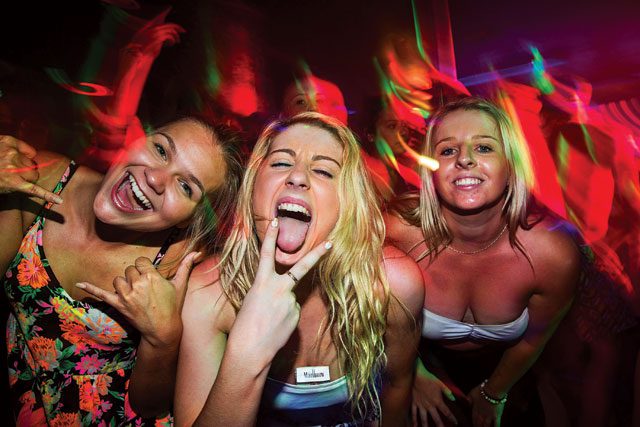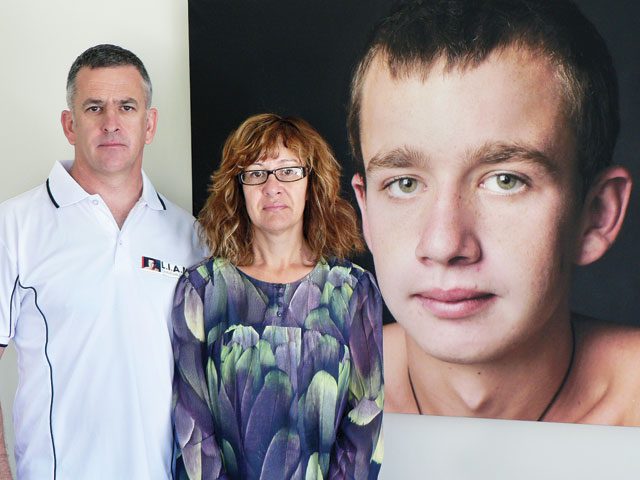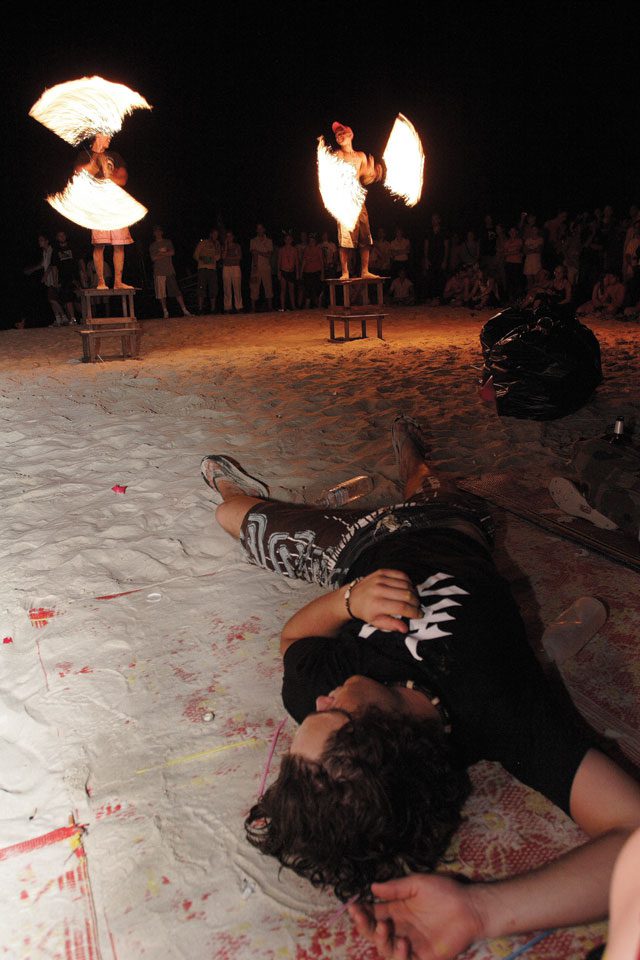Tourists in search of a cheap tipple are guzzling toxic cocktails that may lead to blindness, brain damage or even death
By Oliver Slow

There is much to attract the young traveller to Indonesia’s islands. Lombok and the Gili islands, for instance, offer less-crowded options than Bali, but are growing at a frenzied rate with world-class dive sites, beautiful landscapes and lively nightlife. For some, the islands have embodied their
Southeast Asian dream; for others, their trips have devolved into disaster. Partygoers have suffered serious illness, blindness and even death from methanol poisoning after drinking tainted alcohol.

When Liam Davies travelled to Gili Trawangan to see in the 2012 New Year, he and his friends were aware of the dangers of drinking unregulated alcohol. Just six months previously at least two tourists had died in separate incidents after nights of drinking in the region – with both deaths attributed to methanol poisoning.
Undeterred, Liam and his friends went out drinking, stopping at Rudy’s Pub, a lively and popular tourist haunt.
“The bar staff stated that the drinks they were serving were genuine alcohol,” said Lhani Davies, Liam’s mother. “In my mind, the barman made the decision to risk my son’s life.”
The next evening, Liam’s friends told Lhani what had happened. They all drank from the same bottle, they said, and while they reacted badly but recovered, Liam began shaking, struggled to control his breathing and was unable to see clearly.
After transferring to an international hospital on Lombok island, his condition worsened. He was incorrectly diagnosed as suffering from an aneurysm with severe bleeding of the brain, a common misdiagnosis of methanol poisoning. Further tests after his evacuation to his hometown of Perth, Australia, conclusively established that he had been poisoned by methanol, but by that point it was too late. A few days later, the family made the decision to switch off his life-support machine.
“In Liam’s case, the misdiagnosis in Lombok meant that he went untreated for over 20 hours, allowing the methanol to attack his brain and vital organs,” said Lhani.
Following Liam’s death, Lhani and her husband planned to hold the bar owner accountable for what they see as murder but, upon learning about a string of similar incidents, they decided that setting up a foundation would have a preferable impact. The Lifesaving Initiatives Against Methanol (Liam) Foundation aims to raise awareness of the dangers of methanol poisoning as well as train Indonesian medical staff in dealing with its effects.
While Liam’s story has garnered the most press exposure, largely due to the work being done by the Liam Foundation, it is by no means an isolated case. In June 2012, Swedish tourist Johan Lundin died after drinking a methanol-laced cocktail at Gili Trawangan’s Sama Sama Bar. A year earlier Roisin Burke died after drinking at Happy Café on Lombok. Most recently, 17-year-old Jasmine Baker was airlifted from Bali to Darwin and hospitalised last month following a drinking session to celebrate the end of high school at a bar on Bali’s Kuta Beach.
Such incidents are not isolated to Bali, Lombok and Gili. In April last year, English backpacker Cheznye Emmons died on Sumatra, more than 1,800km from Lombok, after drinking illegal gin. Two German brothers also died in August last year after a night of drinking in Semarang, on the island of Java. The siblings were drinking with friends in Semarang’s Pandanaran Hotel, the management of which told Southeast Asia Globe: “We do not sell or provide alcoholic beverages aside from several brands of beer and a brand of wine. So, the alcoholic beverages [the brothers] consumed must have come from an outside source… We conducted internal investigations and we are sure that the alcohol was not purchased at the hotel. The local authorities have come to the same conclusion.”
Methanol is closely related to ethanol, which is found in alcoholic drinks, but the former is much more lethal. As little as ten millilitres (two teaspoons) can blind a person; ingesting 30ml can kill.
The body is able to cope with methanol in small doses, since it occurs naturally in humans. The liver converts methanol into formaldehyde, which then becomes formic acid and is jettisoned either through urine or as carbon dioxide. However, if consumed in excess, the formaldehyde can become toxic, leading to symptoms such as blurred vision, headaches, nausea and respiratory problems. Later, symptoms often worsen to include organ failure, brain damage or death.
“It is ‘backyard distilleries’ with primitive processes that result in the production of alcohol that contains very high levels of methanol,” said Dr Eddy Bajrovic, medical director of Travelvax Australia, a corporate travel advice service. “If this is used to replace spirits in commercially produced spirit bottles and then mixed for cocktails, the inevitable methanol poisoning can occur.”
While it is usually the deaths of foreign tourists that make the news, the vast majority of deaths occur in the local population.

“Because symptoms of methanol poisoning are often non-specific, diagnosis can be difficult and many poisonings and even outbreaks may pass unnoticed. A large number of fatalities before admission to hospital are likely to contribute to the underreporting of methanol poisonings,” stated a 2012 World Health Organisation (WHO) report on the subject.
Lesley Onyon, regional advisor for the WHO’s Occupational Health and Chemical Safety Southeast Asia office, said that while the organisation does not have specific information on the number of cases in Indonesia, they “are aware of incidents of methanol poisoning” in the country.
Thanks to the work being done by organisations such as the Liam Foundation and ‘A drink to die from’ – a similar campaign set up by Johan Lundin’s fiancé – awareness of the issue is increasing, forcing Indonesian authorities to look more seriously at an issue that has, until recently, largely been ignored.
Diageo, one of the world’s largest alcohol distributors and the manufacturer of global brands including Smirnoff, Johnnie Walker and Guinness, has joined forces with the Liam campaign. Representatives from the company are regularly visiting bars and restaurants on Lombok and neighbouring islands to test the alcohol being served there.
“Regrettably, illicit liquor is widespread across Indonesia, putting at risk the health of consumers and tourists,” said Rachel Chan, communications manager at Diageo. “In response, the international spirits industry has engaged authorities to seek better regulatory policies and stronger enforcement to tackle non-commercial alcohol. More recently, the industry has developed a targeted plan to increase anti-counterfeit efforts in areas such as Lombok and the Gili islands.”
There is no easy solution to the problem of illicit alcohol in Indonesia. Increased alcohol taxes have contributed to its production, yet even if taxes are lowered there are still likely to be those who test the boundaries.
Lhani believes that the best approach is raising awareness, both inside and outside Indonesia, as well as pressuring local authorities to better regulate the alcohol market.
“We hope to get permission to send trained nurses into the wider villages to spread facts on the effects of adulterated alcohol and treatment,” she said. “Raising awareness around the world is just as important as raising awareness within Indonesia. Tourists need to be aware of the risks so they can make educated choices. People see Indonesia as a paradise and seem to ignore basic dangers.”
Also view:
“A Tao worth telling” – In the Philippines, a former meandering booze cruise has become the catalyst for change in needy communities
“Peace at last” – The tubing party is over in Vang Vieng, but tourism has managed to stay afloat
“A pocket of resilience” – From the Ho Chi Minh Trail to the edge of the tourist trail in northern Laos
“Playing dirty” – Everyday Laotians are finding that joining the Asian Century comes with hidden costs
“Suck it up” – Chi Phat is no walk in the park, but visitors prepared to rough it will be rewarded with an unforgettable travel experience

